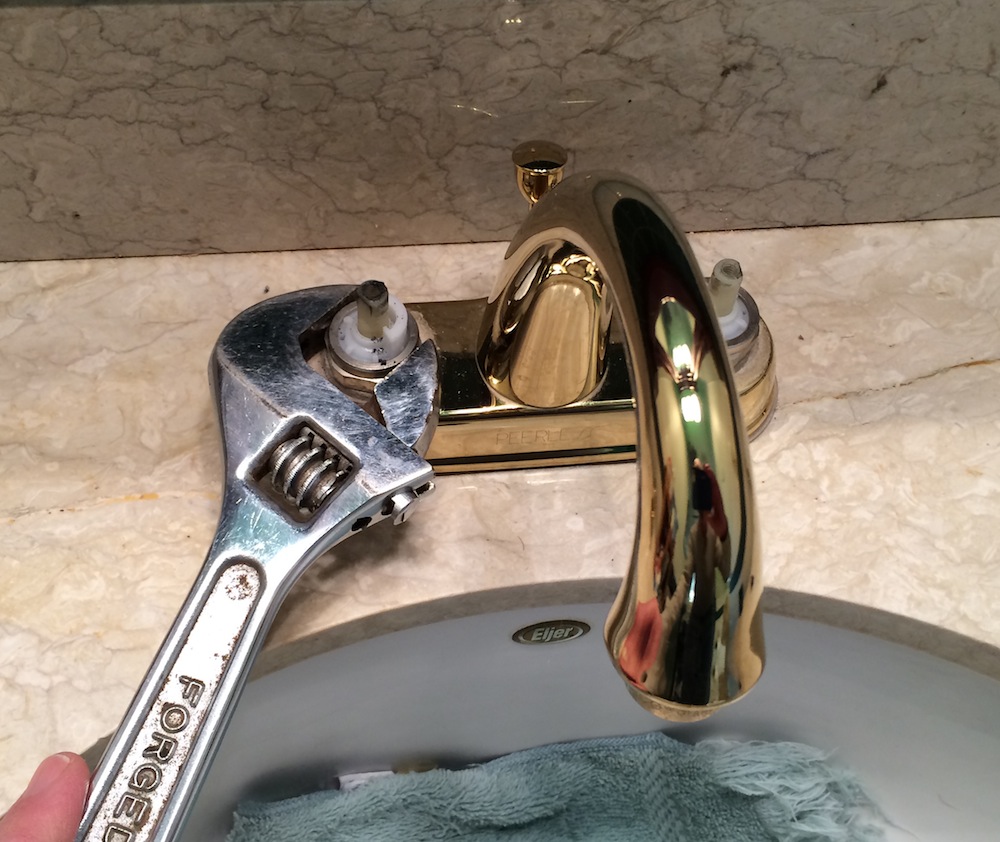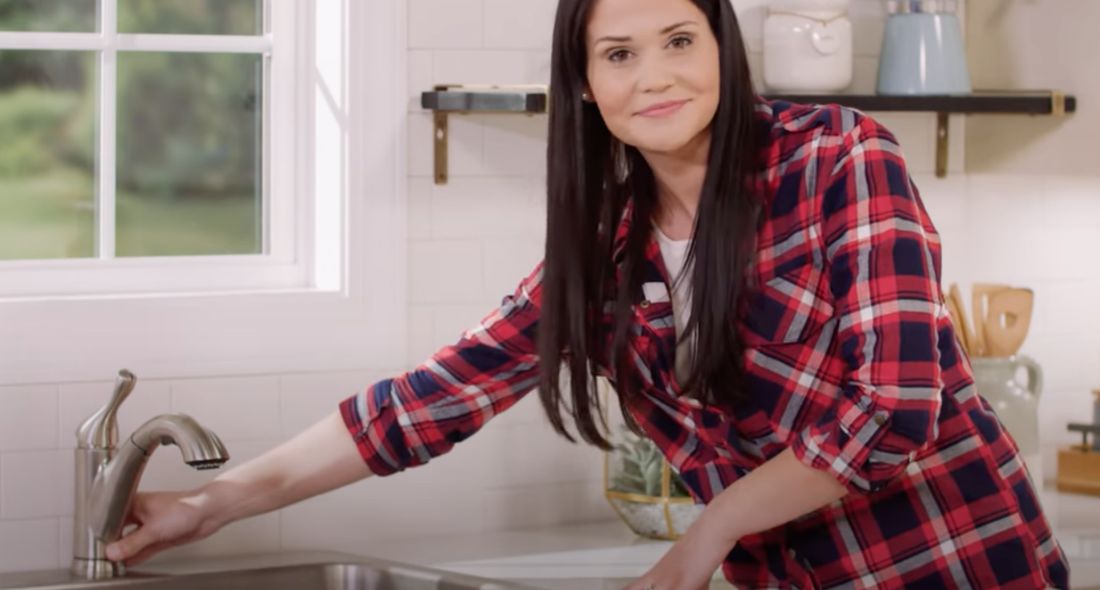Each person is bound to have their own way of thinking on the subject of Why Are My Faucets Dripping (And Can I Fix It Myself)?.

Dripping faucets may look like a minor inconvenience, yet their effect exceeds just the annoyance of the audio. From wasting water to incurring unneeded monetary expenses and health threats, ignoring a trickling faucet can cause various consequences. In this short article, we'll look into why it's critical to resolve this typical house concern immediately and efficiently.
Wastage of Water
Ecological Influence
Trickling taps add significantly to water wastefulness. According to the Epa (EPA), a solitary faucet trickling at one drip per second can lose more than 3,000 gallons of water annually. This not only pressures water resources but likewise impacts ecological communities and wild animals dependent on them.
Step-by-Step Guide to Repairing a Dripping Tap
Tools Required
Prior to trying to deal with a leaking faucet, collect the required tools, including a flexible wrench, screwdrivers, substitute components (such as washers or cartridges), and plumber's tape.
Typical Faucet Issues and Their Solutions
Recognize the sort of faucet and the specific concern creating the drip. Common troubles consist of damaged washing machines, corroded valve seats, or defective O-rings. Describe manufacturer instructions or on the internet tutorials for step-by-step assistance on repair services.
Financial Expenses
Increased Water Costs
Past the ecological effect, trickling faucets can blow up water bills considerably. The collected waste gradually translates into greater energy expenses, which can have been avoided with prompt repair services.
Possible Property Damage
Furthermore, long term leaking can result in harm to components and surface areas bordering the tap. Water build-up can trigger discoloration, deterioration, and also architectural concerns if left neglected, causing extra repair work expenses.
Health and wellness Worries
Mold and Mildew Growth
The constant presence of dampness from a dripping tap develops an excellent environment for mold and mildew and mold development. These fungis not only compromise interior air quality however additionally pose health and wellness threats, especially for people with respiratory conditions or allergic reactions.
Waterborne Conditions
Stationary water in dripping taps can become a breeding ground for microorganisms and various other virus, enhancing the risk of waterborne illness. Pollutants such as Legionella germs thrive in stagnant water, potentially resulting in major diseases when ingested or inhaled.
Do it yourself vs. Specialist Fixing
Pros and Cons of Do It Yourself Fixing
While some might try to repair a dripping tap themselves, DIY repair work feature their own set of obstacles. Without appropriate knowledge and devices, do it yourself attempts can aggravate the issue or bring about incomplete fixings, extending the trouble.
Advantages of Employing an Expert Plumber
Working with an expert plumber guarantees that the underlying reason for the leaking faucet is resolved successfully. Plumbings have the knowledge and devices to detect and fix faucet concerns efficiently, saving time and reducing the risk of more damages.
Environmental Duty
Private Payment to Preservation
Taking duty for dealing with dripping faucets aligns with wider efforts toward water preservation and environmental sustainability. Every individual's activities collectively make a significant influence on maintaining precious resources.
Sustainable Living Practices
By focusing on prompt repair services and taking on water-saving routines, individuals add to lasting living techniques that profit both present and future generations.
Preventive Measures
Normal Maintenance Tips
To stop dripping faucets, execute routine maintenance such as cleaning up aerators, evaluating for leaks, and replacing worn-out parts without delay. Furthermore, consider installing water-saving gadgets or upgrading to a lot more effective components.
Relevance of Prompt Services
Addressing dripping faucets as soon as they're noticed prevents more water wastefulness and potential damages, inevitably conserving both water and money in the long run.
Influence On Residential Property Value
Assumption of Well-Maintained Building
Preserving a building in good condition, consisting of dealing with maintenance concerns like dripping taps, improves its perceived worth and desirability amongst potential purchasers or lessees.
Influence on Resale Value
Properties with properly maintained plumbing fixtures, consisting of faucets, command higher resale worths in the realty market. Attending to trickling taps can contribute to a positive impression during residential property examinations and negotiations.
Conclusion
Dealing with a dripping faucet goes beyond mere convenience; it's an important step towards preserving water, minimizing financial costs, and guarding wellness and building. Whether with DIY repair work or professional support, doing something about it to fix leaking taps is a tiny yet impactful means to advertise accountable stewardship of sources and contribute to a healthier, extra lasting future.
How to Fix a Leaky Faucet: Step-by-Step Repair Guide
A leaky faucet may seem like a simple annoyance, but if it's not fixed promptly, that leak could cost hundreds to potentially thousands. From water damage to mold, mildew, and high water bills, even a tiny leak can be catastrophic if left unattended. Damage like this can even affect the overall value of your home, so it's important to take the right approach for leaky faucet repair. You may need the help of a plumber in some cases, but we've got a few tips you can try on how to fix a leaky faucet before calling the pros.
Four Faucet Types
When you're learning how to fix a leaky faucet, the first step is knowing what kind of faucet you're working with! There are four common types.
Cartridge Faucets
Cartridge faucets come in one- or two-handled varieties. In one-handled cartridge faucets, hot and cold water combines in a single cartridge. In the two-handled versions, hot and cold water are controlled separately and mixed in the faucet.
Ball Faucets
Ball faucets have a single lever you push up and down to adjust the pressure and rotate to change the temperature. A slotted metal ball controls the amount of water allowed into the spout.
Compression Washer Faucets
They're the oldest type of faucet, but they're still used in many homes — especially older ones. Compression faucets have two separate handles that, when turned, raise or lower the washer that seals a water valve. This valve stops water from flowing through the faucet when it is turned off.
Disc Faucets
Disc faucets rarely need to be repaired due to their maintenance-free design. The water flow is controlled by two discs — the upper one raises and lowers against a fixed lower disc, creating a watertight seal. If your disc faucet starts leaking, you may need to replace the seals or clean residue buildup from the inlets.
Fixing a Leaky Faucet
Step 1: Turn Off the Water
Whether you're learning how to fix a leaky bathtub faucet or how to fix a leaky kitchen faucet, always turn off the water supply to your working area when you're fixing a leak. The last thing you want is a flood added to your list of things to fix.
Look for the shutoff valves below your sink or around the tub and turn them clockwise to stop the water flow. If your faucet doesn't have shutoff valves, you may need to turn off the water for the whole house. Check to make sure it's off by turning the faucet on. If nothing comes out, you're ready to start the repair.
Step 2: Take Apart the Faucet
How you disassemble your faucet depends on the type of fixture you have. You can use a flathead screwdriver to remove the caps on top of the handle or handles for cartridge and compression faucets. Inside, you should see handle screws. Unscrew these with a screwdriver to remove the handle.
Disc- and ball-style faucets will typically have an inlet screw near the handle, and removing that will reveal the interior of the faucet.
Detach the Valve Stem
For cartridge- and compression-style faucets, you'll see the inner valve stem or cartridge once you remove the faucet handles. If you have a compression faucet, unscrew the brass valve stem. If you have a cartridge faucet, pull out the cartridge. If your cartridge has been in place for a while, it may require some tools or extra force to remove it due to mineral deposits.
Examine and Replace Parts
Once you've removed the parts, check them out to confirm what needs to be replaced. You may see corroded rubber washers, O-rings, stems, or cartridges. On a ball-style faucet, check the seats and springs for damage.
If you need to repair a leaky disc faucet, check the inlet and seals on the lower disc.
Once you determine what parts must be replaced, visit your local hardware store. Bring the damaged parts with you to ensure you can purchase the correct components to replace them.
Clean Valves and Faucet Cavity
If you've removed a stem or cartridge, you may notice mineral buildup in the faucet's threads. Use white vinegar to clean the valve seat by soaking it for a few minutes, then scrub it away with a soft toothbrush and rinse with warm water. You can also clean the interior of the faucet in the same way.
Reassemble the Faucet
Once your faucet is cleaned and the required parts have been replaced, it's time to reassemble it. Put the pieces back together and slowly turn the water supply back on. Doing this slowly is crucial because too much initial water pressure can damage the new hardware you've just installed.
https://homewarranty.firstam.com/blog/how-to-fix-leaky-faucet

We hope you enjoyed our topic on How to Fix a Dripping or Leaky Faucet . Thanks so much for finding the time to read our article post. Sharing is nice. Helping others is fun. I value reading our article about Leaky Faucets: Why They Happen & What to Do About Them.